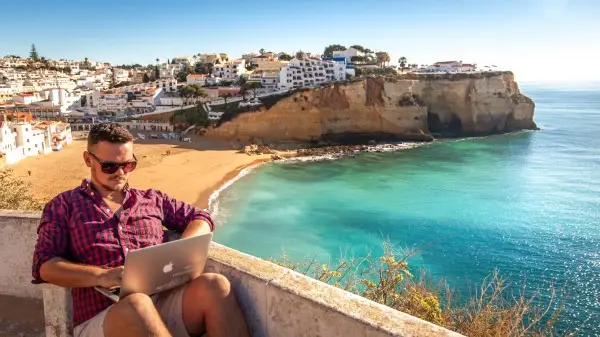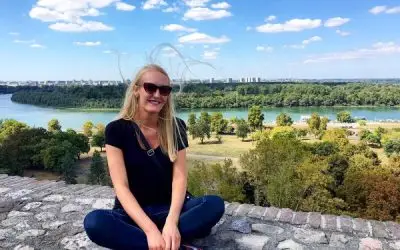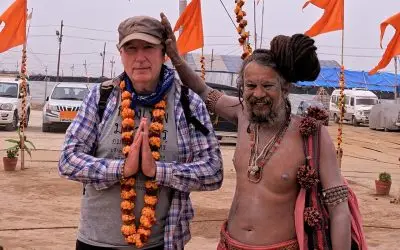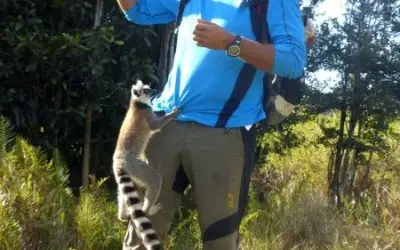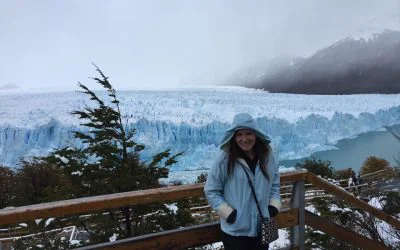Dan James is the traveller behind the exceptionally successful travel blog Dan Flying Solo. With more than 4 continuous years on the road, he certainly has more experiences than most people his age!
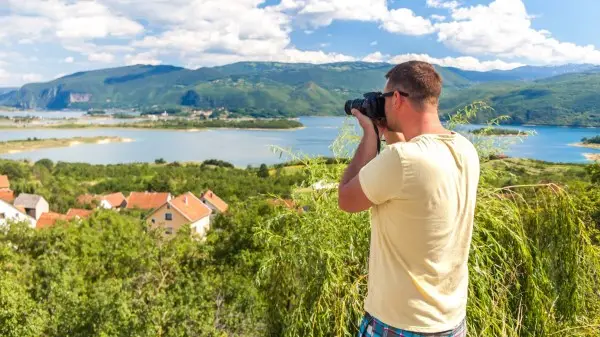
Dan, we’ve read your long version of “about me” section on your blog. (Yes, every word! 🙂 Can you give us the short version of this? Who is Dan? And who is Dan that is flying solo?
Haha, every word – that is impressive – it is quite a word-dump of an about me page!
I was born in the south of England, near Bournemouth, and left home at 16 moving nearer to the capital to study performing arts. I’ve always moved around a lot, I think now being based in Portugal for the last few years is the longest I’ve ever had one address in those sixteen years since – so not being able to be still and constantly making new connections feels very normal.
That said, although I was always moving cities in the UK, and did a brief summer in my late teens in Portugal, I didn’t really start thinking about travel being something for me until 2011 after a trip to Rio de Janeiro. That three-week trip, over the famous carnival with friends and locals going to many of the Samba schools really changed my life and made me realise how little emphasis I had put on travelling.
At the time I was a restaurant manager, working long hours and paying expensive London rent. With mid-week days off it wasn’t easy to arrange travel with friends and thus, Dan Flying Solo was born – initially to document my budget mid-week trips around Europe, and once I had saved enough money, I headed off on the one-way ticket to Indonesia.
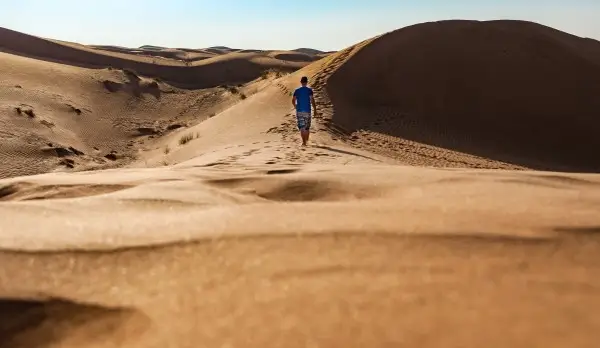
What are your favourite travelling styles? How much has your style changed since the first days?
I’m pretty open to all styles of travel and have no problem booking a luxury hotel as a treat or even an all-inclusive if I just want a few days relaxing with friends, but what truly makes me smile is local immersive travel.
Staying in small remote village in Cambodia, learning local instruments and being invited to sunrise ceremonies by the local leaders, or camping in small communities in Tajikistan breaking bread together and communicating via Google Translate – these were some of the first moments and the most recent moments over the last six years of travel. I have a deep yearning to meet and talk with people, which was one of my favourite things about a hospitality career, and so I feel very comfortable in situations like that, remote corners, local living, and taking it slow.
One of the biggest changes to my travel style hasn’t really come around by choice or naturally, but as my travels have become my work, the lines have become blurred between passion and profit, and unfortunately, much of my commissioned travel work increases the speed of a trip and changes the types of lodging and experience – something I actively try to combat by extending those trips with my own dime or making sure my ‘non-work’ trips are the complete opposite.
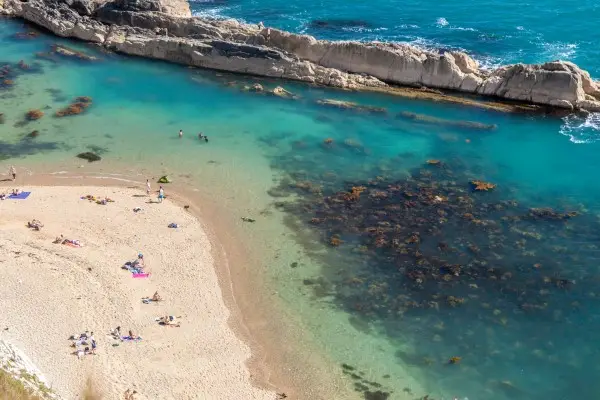
You are not aiming to visit all countries in the world as many NomadMania members are, but have you ever thought about what the ultimate travel goal would be for you, if you were to have one?
Travelling to every country in the world isn’t a goal as such, but I’m certainly not against it happening if it happens naturally. My biggest concern with setting myself a target like that would be the temptation to rush and miss some of those local experiences that make travelling so special to me.
I think social media has almost glorified doing everything as quickly as possible, and making numbers the key driver. But, the NomadMania community has made me realise there are plenty of people hitting that goal, while also immersing themselves fully, so, in that form, it would be something I would love to achieve. I just seem to get hooked on certain destinations, like Indonesia and Italy, and keep going back for me!
The biggest travel goal for me personally would be to overland around the world, from where I live in Portugal the longest train journey (in the world, I think) would take me to Vietnam – and that sounds like an adventure I would love.
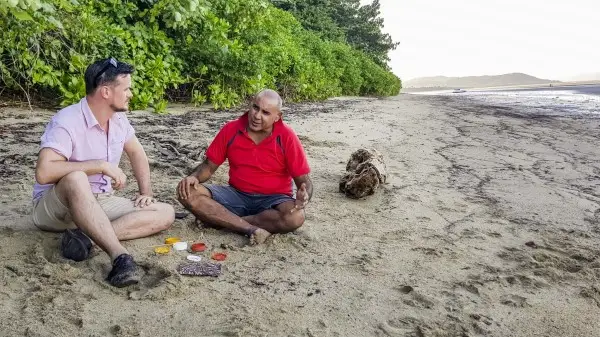
At one point in your life, you had 1467 days of non-stop travel. This is 4,02 years and that is a lot! How did that experience shape you? What were the best lessons?
One of the most overused terms in travel is about how ‘it changes you’ but if I’m honest, I don’t recognise myself compared to who I was in 2014 when I left for that trip. Politically, socially, emotionally, financially – every aspect of my life has been changed and shaped by that journey.
I did return to the UK, from time to time, and had stints ‘living’ in Australia and New Zealand to top up the funds, and to be honest, those times living in other countries with relatively similar cultures taught me just as much, if not more than some of my more far-flung adventures.
The biggest lesson I took away from that time was to listen and learn. Everything I knew, all the stereotypes and bias that we subconsciously develop in day-to-day life, they were all challenged continuously and if I hadn’t listened and embraced those, I would have missed out on the best education of my life.
Having my residency declined in Australia, and going through the financial stress and relationship breakup that followed was a reminder of how unjust our visa rules are for people daily just to take a holiday. Spending time working with a local initiative in Vietnam, and seeing the ongoing effects of Agent Orange these many years later changed my view on wars, and spending time in Palestine made me re-evaluate how I consume news and my political leanings. The common theme in all of these lessons were the people that gave me their time, and their thoughts and each person made me a little of my world view today.
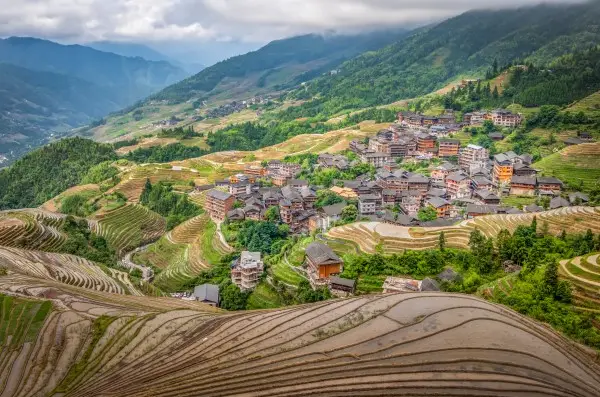
You recently decided to move to Portugal. Out of all countries, you’ve visited so far, why did you choose this country to live in?
Australia was actually my first choice to settle down, I completely fell in love with the lifestyle and culture there, but when that didn’t work out, I retreated to Europe to get over a broken heart and found myself in Portugal, a country I’ve known since I was four. This visit was different though, I was ready to lay down some routes and after spending some time travelling around the country I quickly realised it ticked nearly all my boxes.
The weather and climate are fantastic and the coast is so important fo me and it more than delivers on that front. There is plenty of diverse landscapes, both on the mainland and the islands of Madeira and the Azores, the architecture is fantastic, the food is fresh and delicious, and it has a lot of influences from Europe, Africa and South America which hugely appealed to me.
As with everything, the main sell though was the people. I’ve always loved visiting Portugal thanks to the kind nature and consideration of communities here, but as I researched the politics of the country, the social structure, the environmental goals, things that I wouldn’t have even considered at the start of my journey, I realised they aligned with what mattered to me. With Brexit processes starting in the UK and feeling disenfranchised with my home country, and knowing freedom of movement as British citizen would be lost, my goal changed to becoming a citizen of Portugal – and in a couple of years hopefully, I will be. My experience in Australia made me realise that for people without a degree, like myself, or without a big bank balance, the change to immigrate and live in another country is really hard and just how much of a privilege freedom of movement is. I think a lot of people in the UK take it for granted and don’t realise quite what is being given up.
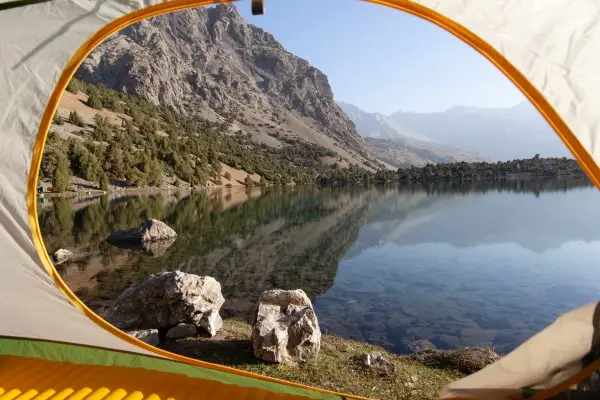
What are some things you can not travel without?
My camera and phone are the only things that are essentials in my bag, and the phone is only to check in with my parents who worry if I do a big solo trip. I really don’t own much, or develop attachments to things easily. Now, with much of my work online, I often begrudgingly lug a laptop around with me, but try and have at least one trip a year where I completely disconnect for a week or two.
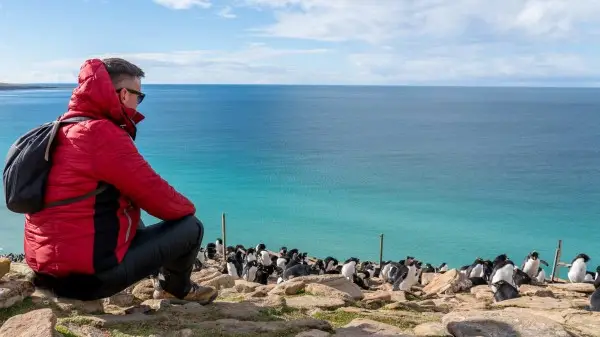
What are the travel experiences and stories that have influenced you the most to become the individual you are today?
This is such a hard question to answer, but I’ll highlight the top three:
1.Visiting Rio de Janerio for the carnival was the start of my love for travelling, so one of the defining moments. I went with friends from London who were Sambra professionals and danced with the top-tier local schools in Rio. Being able to visit the dance schools and favelas with them, and being welcomed with such warmth, and learning to Samba amongst the radiation of energy and passion in those halls has forever shaped me. Although there was one negative incident, it was the biggest lesson I think I’ve had on narratives about safety and fear when it comes to travelling.
2.My first ever photography job was a tour to Cambodia and Vietnam with a company called Hands on Journeys. Their model is Empowerment Tourism, which they established to try and change the way ‘voluntourism’ was shaping that side of the industry. Funds from tours were spent within local communities, and creating job opportunities and training to set up tourism experiences, that the travellers would then experience and see on their arrival. A much different approach to travellers building toilets or schools say, but their fund was used to create jobs and sustainable business for the locals. Not only did that job make me rethink aid and international development, but it also offered me the chance to meet so many incredible people doing amazing things on the ground, and made me realise just how much of the narrative is often focused on the traveller/foreign and what they are doing, and not celebrating the incredible and often more vital work that local community projects do. Recently. I spent a month in Jamaica with EUaid and a local, documenting the projects there – international development, if and when done properly, I find really interesting and is an area I’d like to look at more.
3.I was incredibly lucky as a Lonely Planet ambassador while living in Australia to be given a bit of a free pass to create a video on any aspect of Australia travel of my choosing. I opted to focus on Aboriginal art and culture https://www.danflyingsolo.com/port-douglas-aboriginal-culture/, something that should be a staple of any travel to the country but is often overlooked. With the film crew we spent a few days in Tropical North Queensland, where the amazing Binna, a local artist, shared so much knowledge with me and took me around his local area, it was an experience that meant so much to me. A few years later I got to take a tour group back to Port Douglas, and take them to his art studio to do an art class – it was fantastic to be able to reconnect with him and I’ll forever be grateful to Binna, and the community that welcomed me. If you ever find yourself in that part of the world be sure to visit his gallery – https://www.janbalgallery.com.au/.
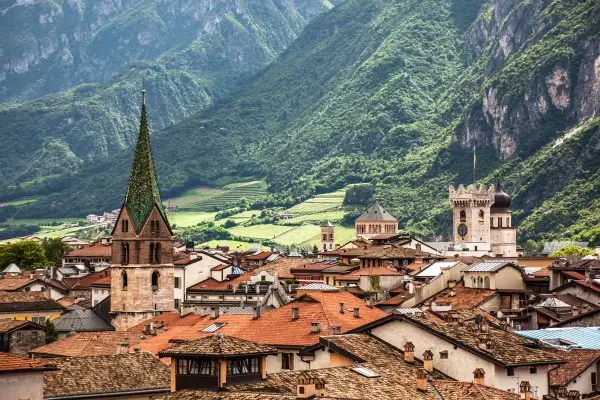
Did you ever consider going back to the UK to live in?
It’s crossed my mind, but to be honest, unless it was for family reasons I can’t see it happening. If I did, I highly doubt it would be to England and I would instead move to Scotland. I love Edinburgh, and usually spend around a month a year there working with the Edinburgh Festivals media time. It’s an amazing city, full of art and culture and I find the Scottish people very welcoming and open. If the weather was better, perhaps I would have opted to live there instead of Portugal, who knows.
Do you think that travel as we know it will be back soon, or some things will have to change? What changes are you expecting to see?
I think it will eventually, in a couple of years, but I hope we do see some changes. Travel was becoming a commodity and commercialised to the point the experience was being removed from it. Local experiences, when packaged up and sold by big OTAs can make accessing them easier and create opportunities, but it can also strip away a lot of what makes them so special. I hope that we see a shift back to more slow travel, and I know I’m really guilty of this in recent years.
In the short term, I think it will lose its personality a bit. Solo travel, on the few trips I have taken this year locally, has felt different, more distanced, and that’s to be expected with social distancing. The random moments and interactions which made it so special have gone. As soon as this subsides though I think that will come back in abundance, as our human nature will be desperate to have those connections again.
The scary thing though, is what businesses will survive. So many won’t come out of this okay.
I also worry that people will be priced out of travel. It took me many years working in a non-degree job to save for a trip like this so I get that. While I understand the argument for increased costs to protect the environment, that isn’t something that will affect the super-wealthy and regular work fliers (myself included) but merely cut off a whole group of people from accessing opportunities and other cultures. We can’t let it become only the rich who have access to these experiences and I think there are better ways to manage this.
Ultimately, it will be us travellers who decide what the travel industry looks like in a few years, based on how we spend our money – so we have a responsibility and a huge part to play in this.
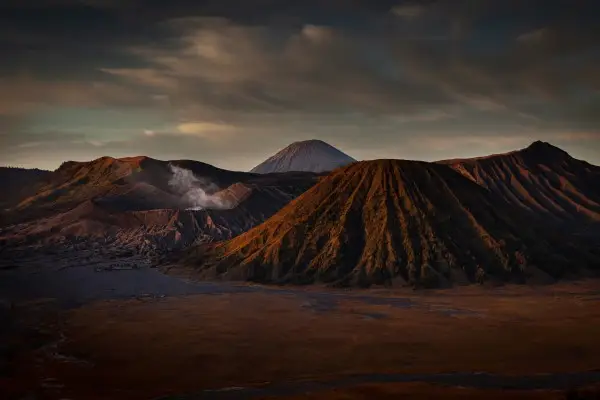
Have you managed to travel locally during the lockdown? What did you learn from this experience?
Luckily I have, our lockdown in Portugal was short and not too restrictive, and since May I’ve been able to enjoy some local trips, both here in the mainland and also to the Azores islands. (ed’s note: the interview was conducted before the more recent lockdowns…)
There has certainly been a shift in my mindset when it comes to travel at the moment, considering where I’m staying at the risk I might have to others etc. Road Trips and AirBnB’s have become things I’ve relied on more, which I’m not sure how good that is given that the latter has caused a huge housing and pricing issue in the biggest cities here.
The biggest lesson though has been from online behaviours and comparisons between other countries behaviours. For many, travel has now become a right rather than a privilege, and I think that’s something we all need to have some reckoning with and be humbled again into what a privileged life it is to travel, especially in a pandemic, and especially for Europeans the ease and freedom of movement we are used to.
Ultimately though, the industry needs saving and where governments can’t or won’t do that, individually responsible travellers are the only hope for many small businesses.
Finally, our signature question, if you could invite any four people to dinner from any period in history who would you invite?
Top of the list is David Attenborough, the guy is an absolute legend and has seen so much, over such a timescale, it would be fascinating to get insight into just how much has changed and be able to dig a bit deeper than the documentaries allow. Ibn Battuta would also be a fascinating guest, to hear about the old silk road and discover a different time.
And lastly my grandparents, I have very few memories of my grandfather, and my grandma died when I was younger, but I have fond memories of her and would love to talk to her about all these places in the world we used to see on the TV together, that neither of us ever imagined would be possible to see with our own eyes. It’s incredible to think just how much the world has changed in such a short amount of time, it would be nice to enjoy a dinner without smartphones!
